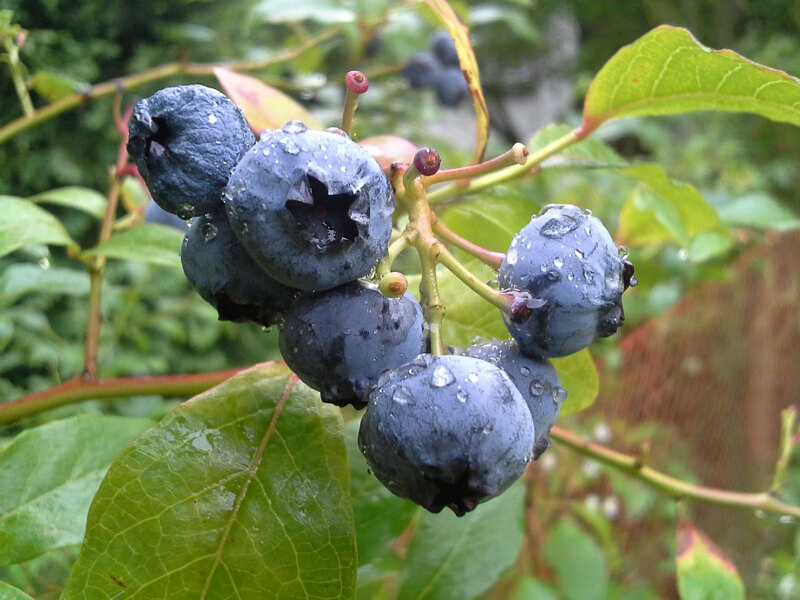The China Bilberry Extract and Its Significance in Modern Medicine
Bilberry is a wild short shrub growing in temperate and sub-arctic regions like Northern Europe and some parts of Asia. The plant produces edible berries that are blackish in color. Their pulp has a reddish purple tinge and a tangy taste. The berry can be consumed raw and regular consumption is said to improve vision. Throughout Europe, the bilberry has been in use for its medicinal values. Not only is the berry good for the eye but also inhibits atherosclerosis, hemorrhoids, diarrhea, gout, cataract and macular degeneration to name a few. However, further research, especially on humans, are necessary for a more definite understanding of the bilberry’s effects.
British pilots, serving in the Royal Air Force, reportedly ate bilberry jam before flying. They claimed it helped enhance their night vision and improved their flight precision but no conclusive research study is available to back this claim. The people of Poland eat jam made from bilberry to cure mouth and throat infections. Tannin present in the berry is an anti-inflammatory and reduces swelling or irritations in the mouth or throat. They also use the pulp as filling in a sweet bun which is a local delicacy. It is consumed in most parts of Europe as a medicine to treat diarrhea. The Italians and French use bilberry extract as a base for liquors and in sorbets or desserts.
Research is on regarding the medicinal values of bilberry extract and scientist are considering it as a natural supplement for eye care. In fact, bilberry extract was prescribed in France, since 1945, for retinopathy of diabetic patients. It was also known to be used in traditional Chinese medicine to improve vision and prevent cataract or other eye diseases like macular degeneration which can lead to blindness. The bilberry contains many active ingredients which are beneficial to human health and are used as natural alternatives to chemical drugs in Europe and Asia. Some of the principal active compounds present in the bilberry extract are flavonoids, tannins, and anthocyanidins. Anthocyanidins consist mainly of anthocyanosis and anthocyanins, both of which are very effective anti-oxidants. Per 100 gram of bilberry contains 300 milligrams of 700 milligrams of anthocyanidins. China bilberry extract contains one of the highest percentages of anthocyanins and anthocyanosis.
These anthocyanosis have a stabilizing effect on collagen tissues like tendons, ligaments, and cartilage. They might also be able to check blood sugar level and cholesterol as well as lower high blood pressure, thereby prevent various cardiovascular illness. The active compounds in china bilberry extract can strengthen blood vessels and improve RBC (red blood corpuscle) count. The anthocyanidin also targets free radicals in the body thus assuring healthy cell life. The overall influence of the anti-oxidants on the blood and blood vessels is unlike any other berries. This effect of the bilberry extract on the body keeps it young and healthy. The anti-oxidant effect on the skin and body makes it one of the best natural anti-ageing berries.
The active compounds in the bilberry extract also strengthen the capillary walls and maintain flexibility of RBCs. It allows more RBCs to pass through the capillaries, which leads to increased oxygen supply. As the eye contains a large number of capillaries the bilberry may be significantly beneficial for the eye. It also increases retinal pigment that enhances the vision of the eye. Even though there has been little research, native European people who regularly eat the berry or drink it tea have reported improvement in their vision. The anthocyanidins are also capable of preventing macular degeneration of the retina, cataract and diabetic retinopathy. Owing to its preventive effects on cataract and diabetes, the bilberry is a great natural medicine to prevent blindness. Thus, the bilberry not only keeps your eyes healthy it can even avert blindness from other diseases.
The anthocyanins in the china bilberry extract help to reduce chronic venous insufficiency (CVI). It is a disorder that occurs when the veins that carry blood back to the heart get damaged. The anthocyanins strengthen the valves of the veins and maintain optimal blood pressure. Tannins, another active compound, are an anti-inflammatory. They help relieve swells or inflammation and also treat mouth or throat infections. The other important active compound is flavonoids which can reduce blood sugar and check cholesterol.



 Healthier Future
Healthier Future